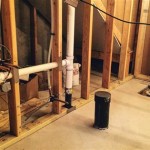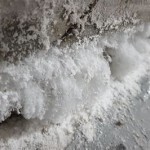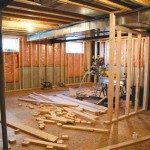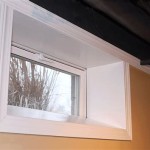Essential Aspects of Insulation For Basement Walls R Value
Insulating basement walls is a crucial aspect of home energy efficiency and comfort. By understanding the concept of R-value and selecting the appropriate insulation material, homeowners can effectively reduce heat loss, improve indoor air quality, and minimize moisture-related issues in their basements.
Understanding R-Value
R-value is a measure of an insulation material's resistance to heat flow. The higher the R-value, the more effective the insulation is at preventing heat transfer. For basement walls, a higher R-value indicates better insulation, resulting in reduced heat loss from the basement to the outside environment.
Recommended R-Values for Basement Walls
The recommended R-value for basement walls varies depending on climate zone and building code requirements. In general, a minimum R-value of 10 is recommended for basement walls in most regions. However, in colder climates, an R-value of 15 or higher may be necessary to achieve optimal insulation.
Types of Insulation for Basement Walls
Various types of insulation can be used for basement walls, including:
- Batt insulation: Fiberglass or cellulose batts are commonly used and offer a cost-effective solution.
- Rigid foam insulation: Polystyrene or polyurethane foam boards provide high R-value and moisture resistance.
- Spray foam insulation: Polyurethane or polyisocyanurate spray foam expands to fill gaps and voids, creating a seamless seal.
Factors to Consider When Choosing Insulation
When selecting insulation for basement walls, homeowners should consider the following factors:
- R-value: Choose insulation with an R-value appropriate for your climate zone.
- Moisture resistance: Basement walls are prone to moisture, so insulation should be moisture-resistant to prevent mold growth.
- Cost: Insulation materials vary in cost, so consider your budget when making a decision.
- Installation: Some insulation types are easier to install than others. Choose an insulation that can be installed efficiently and effectively.
Benefits of Insulating Basement Walls
Insulating basement walls provides numerous benefits, including:
- Reduced heat loss: Insulation prevents heat from escaping through the walls, leading to lower energy bills.
- Improved indoor air quality: Insulation helps control moisture and reduces condensation, improving indoor air quality.
- Increased comfort: A well-insulated basement will be more comfortable year-round, reducing drafts and temperature fluctuations.
- Lower risk of moisture problems: Insulation can help prevent moisture from penetrating the walls, reducing the risk of mold, mildew, and water damage.
Conclusion
Insulating basement walls is essential for creating a comfortable, energy-efficient, and healthy living space. By understanding R-value, selecting the appropriate insulation material, and considering the factors discussed above, homeowners can make informed decisions that will benefit their basement and overall home.

Etw Foundation Code Minimum R 10 Continuous Insulation Buildingscience Com

Insulation Levels For Cold Hot And Moderate Climates

Recommended Insulation Levels For Optimum R Value

How To Insulate Basement Walls True Value

Basement Wall Insulation Achieving Best Results Rmax

Basement Wall Insulation Find Out The Best Practices Rmax

The Importance Of Insulation R Values Eco Spray

All About Insulation R Values The Home

R Value Insulation

R Values And U Factors Of Single Wythe Concrete Masonry Walls Ncma








